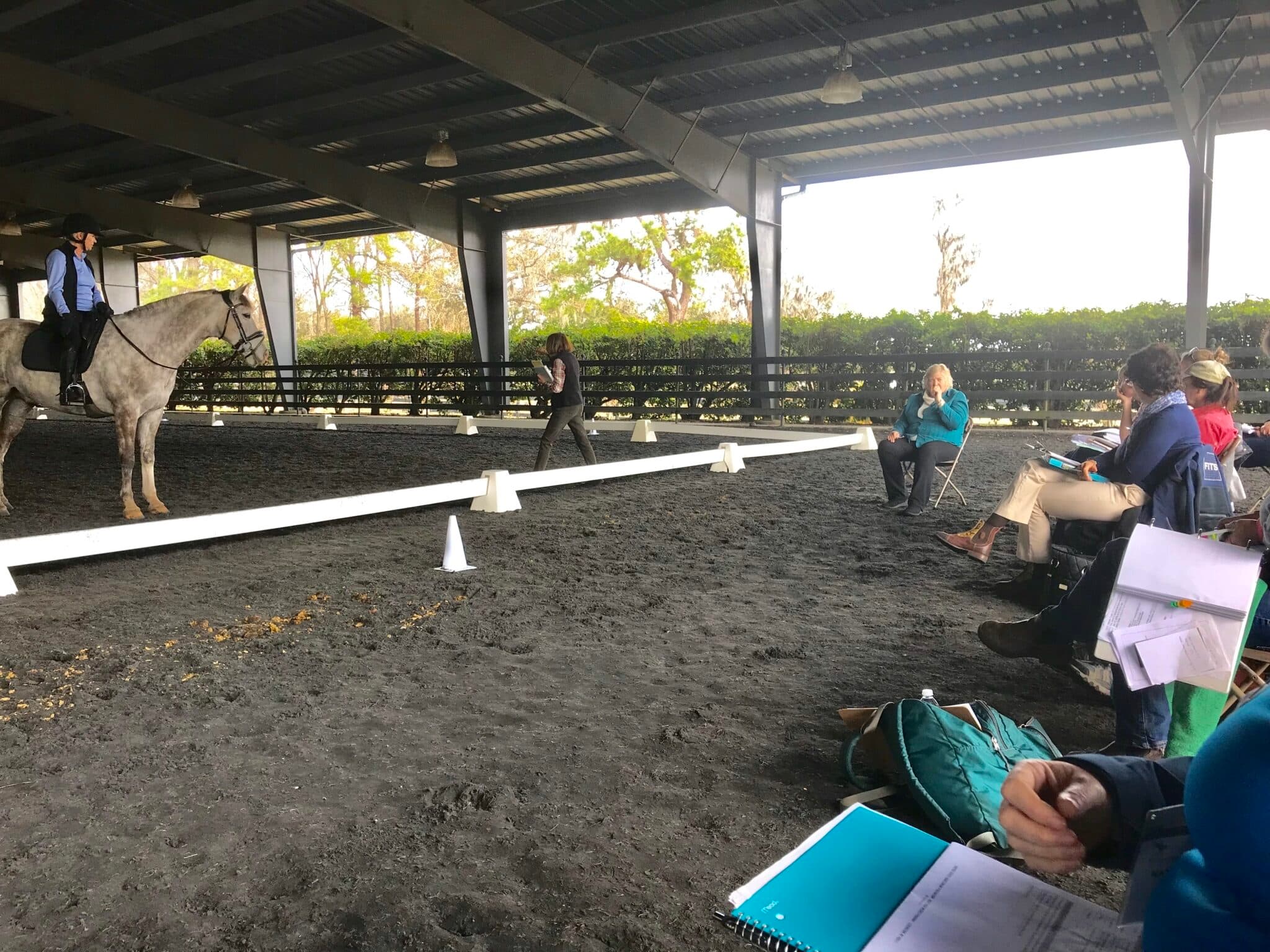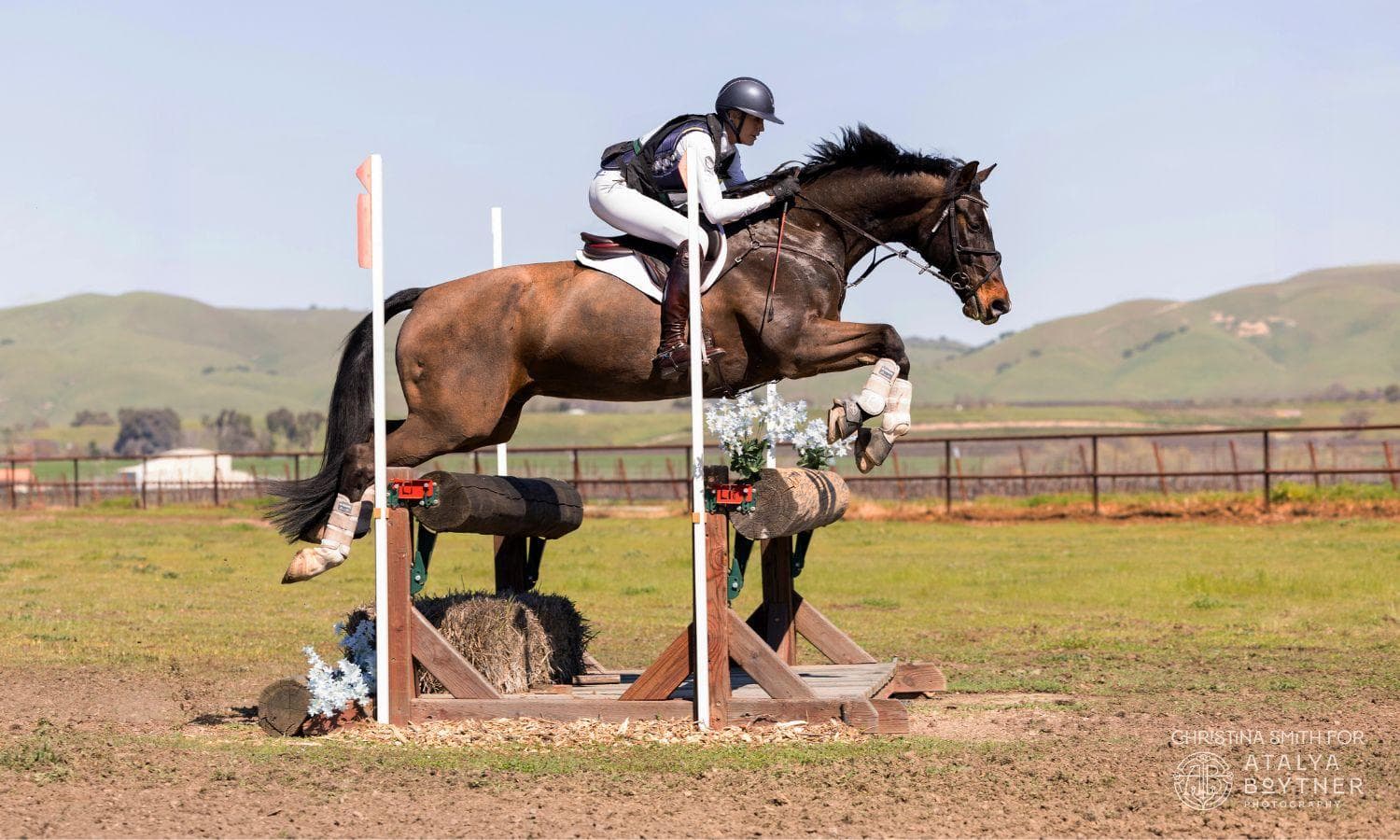So You Want to Be a Judge, Part I: Learning a Foreign Language

As I suspect is the case for many event riders, I have a recurring nightmare about dressage. I’m walking out of the ring at an event, where I’ve just ridden the test of my life. So good, in fact, that on my way back to the trailer I’m already congratulating myself, bragging to friends that I’ve definitely scored in the teens. Certainly I’m several points ahead of the competition. I untack, feed my mare a bag of carrots, and head off to retrieve my test, which I come to discover is written in another language, in characters I can’t even decipher. The TD can’t explain it either, other than to say that a dressage judge’s marks are never up for debate. I’m placed dead last in the class, on the basis that my score is incomprehensible, aside from a little mark in front of it which appears, we all agree, to be a subtraction symbol, a negative.
A little about me: My name is Abby Gibbon. I’m the owner, trainer, and manager of Fine Idea Farm, an eventing and dressage facility in Mt. Airy, Maryland. In my imaginary life, I’m going to win Olympic Gold in eventing and dressage in the not-too-distant future, a future in which Michael Jung and Charlotte Dujardin will not only know my name but be my best friends, hanging out all the time just to toss around some theory, laughs, memories of all those good times on the podiums.
In my real, honest life, in which I juggle stall cleaning and bucket scrubbing with teaching lessons, riding, and competing my own and clients’ horses, managing staff, and all the other nitty-gritty stuff that goes along with owning a farm and your own business, I don’t have the time or resources to aim for the stars. But what I do have is the passion to become the best-educated, well-read, all-rounded trainer and embodiment of horsemanship for my students and horses that I possibly can.
That’s where the USEF “r” Eventing Judge Program, in which candidates are trained to become event officials, fits in for me: education. I’ve always been academically inclined (in another imaginary life, I’m off in the bowels of the Bodleian Library working on dissertations), and I’ve been determined for some time to get to the bottom of my recurring nightmare, my subconscious assertion that I’ve never truly understood the language of dressage. Learning the judge’s perspective would offer a new lens through which to calibrate my view of our sport. And although it might not be as glamorous as galloping out of the box in Kentucky, there’s nevertheless a definite need for scholars devoted to standards, education, and grassroots training—and making these subjects fun and interesting for students—perhaps now more than ever.
And so in January, I packed my bags and headed for Dressage Session I in Ocala, Florida, the first of the three required training programs I’ll participate in this year. Nervous, because this was the first time I’d been away from the farm in the three years since I bought it. Nervous also because I felt like I was headed back to grad school, which, for me, walking out of the doors of the Orlando airport, was akin to what all the surrounding tweens in mouse ears were feeling. And lastly a little apprehensive, because even though I’ve met the competitive standards necessary to become a judge, as I settled into my hotel room that night and glanced through the short list of registrants, I recognized the names of a few three- and four-star riders.
The apprehension was quick to subside, but not the excitement. The next four days were spent jam-packed with theory, biomechanics, and insightful, engaging, often hilarious stories from our tutors, FEI Judges Janis Linnan and Loris Henry. We tried our hands at scoring tests on video and in person at the beautiful Longwood Farm South. We saw some truly incredible examples of impulsion and gaits. Learned how to think on our feet when, as we’ve all experienced, rides go a little haywire. When to subtract a point for certain disobediences, and on the other hand, when to really reward with 8s, 9s and 10s—which happens, refreshingly, more often than you’d think.

The lightbulb moment for me was on our fourth and final day, having spent the previous three days intensely studying and strategizing, when we got to listen first-hand as Loris scored a test. Like my nightmares, I’ve received my fair share of score sheets which made me feel that the judge and I weren’t on the same page, or worse, that the judge was actually a malevolent robot calculator who computed in numbers less than 5. But listening to Loris narrate a test, focusing on the language and vocabulary of dressage well before any scores were even offered, how she used certain words and descriptions to lead in the direction of selecting a score, was enlightening. Test movements happen quickly, but Loris’ test was narrated slowly and methodically throughout, the scores delivered at the last possible moment of each movement, a very fine-tuned and encompassing process. Nothing knee-jerk or robotic about it, it was in many ways a mirrored performance of the ridden test, and equally as practiced. And all of the sudden it seemed both accessible and impossible, a new language you could crack, but only through lots of study, hard work, and application, practice pairing words with numbers over and over again, for weeks, months, and years to come. The same amount of work we do in the ring, to prepare as riders. To say I’ve gained a new appreciation would be putting it lightly.
Equally exciting was being immersed in a group of folks who, yes, included three- and four-star riders, but also folks ranging in experience from Preliminary to Advanced, with backgrounds and goals as diverse as possible, all equally as passionate about learning and achieving this new title. Of course, this is only the beginning, and looking at the mountain of work between me and the licensing test in August, which includes many hours of independent study, apprenticeship and reading, in addition to two more training programs, I know it isn’t going to be easy.
But already I feel my eye recalibrating. I’m starting to garble in this foreign language, these new unwieldy words. Already I can see some benefit in my students and horses. And there is plenty more to come.
Abby Gibbon is the owner, trainer, and manager of Fine Idea Farm in Mt. Airy, Md. She is currently pursuing her “r” Eventing Judge license and looks forward to writing about the process throughout the year. Stay tuned for more!















